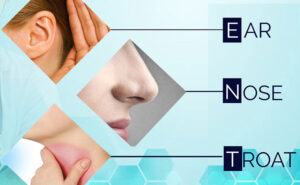Tinnitus/Deafness
 Tinnitus is the perception of sound in the ears or head in the absence of an external sound source. It is often described as a ringing, buzzing, hissing, humming, or whistling sound. Tinnitus can be intermittent or constant and can vary in intensity. It is not a disease itself but rather a symptom of an underlying condition or a result of certain factors.
Tinnitus is the perception of sound in the ears or head in the absence of an external sound source. It is often described as a ringing, buzzing, hissing, humming, or whistling sound. Tinnitus can be intermittent or constant and can vary in intensity. It is not a disease itself but rather a symptom of an underlying condition or a result of certain factors. Causes
Tinnitus can have various causes, and it is often associated with underlying conditions or factors that affect the auditory system. Here are some common causes of tinnitus:
1. Noise-induced hearing loss: Exposure to loud sounds, such as music concerts, construction sites, or loud machinery, can damage the sensory cells in the inner ear, leading to both hearing loss and tinnitus.
2. Age-related hearing loss: As people age, the sensory cells in the inner ear naturally deteriorate, leading to age-related hearing loss. Tinnitus can be associated with this hearing loss.
3. Earwax blockage: Excessive accumulation of earwax can cause blockage and irritation in the ear canal, leading to tinnitus symptoms.
4. Ototoxic medications: Certain medications, such as high doses of nonsteroidal anti-inflammatory drugs (NSAIDs), certain antibiotics, diuretics, chemotherapy drugs, and some antidepressants, can have tinnitus as a side effect.
5. Meniere’s disease: This inner ear disorder is characterized by episodes of vertigo, hearing loss, and tinnitus. The exact cause of Meniere’s disease is unknown, but fluid buildup in the inner ear is believed to play a role.
6. Temporomandibular joint (TMJ) disorders: Problems with the joint that connects the jaw to the skull (TMJ) can be associated with tinnitus.
7. Head or neck injuries: Traumatic injuries to the head or neck, such as a concussion, whiplash, or skull fracture, can damage the auditory system and lead to tinnitus.
8. Vascular disorders: Certain conditions affecting the blood vessels, such as high blood pressure, atherosclerosis, or turbulent blood flow, can cause tinnitus symptoms.
9. Middle ear conditions: Infections, fluid buildup, or abnormalities in the middle ear, such as otosclerosis (stiffening of the bones in the middle ear), can contribute to tinnitus.
Symptoms
The primary symptom of tinnitus is the perception of sound in the ears or head without an external sound source. The sound can vary in its characteristics and intensity from person to person. Some common symptoms associated with tinnitus include:
1. Ringing: A high-pitched ringing sound is often described by individuals with tinnitus. However, the perceived sound can also be described as buzzing, humming, hissing, whistling, clicking, or roaring.
2. Sound variations: The sound may be constant or intermittent, and it can fluctuate in volume or pitch. Some individuals may experience multiple sounds simultaneously or over time.
3. Ear discomfort or pressure: Some people with tinnitus may also experience ear discomfort or a feeling of fullness or pressure in the ears.
4. Hearing loss: In some cases, tinnitus may be accompanied by hearing loss, particularly if it is related to noise-induced or age-related hearing loss.
5. Sleep disturbances: Tinnitus can interfere with sleep, making it difficult to fall asleep or stay asleep. It may also worsen during quiet periods, causing sleep disruptions.
6. Concentration difficulties: Tinnitus can affect concentration and focus, making it challenging to perform tasks that require mental attention.
7. Emotional impact: Tinnitus can cause emotional distress, anxiety, irritability, frustration, or even depression. The impact on quality of life can vary from person to person.
Preventions
Tinnitus can be challenging to prevent completely, as it is often a symptom of an underlying condition or a result of various factors. However, there are some preventive measures that can help reduce the risk of tinnitus or minimize its impact. Here are a few recommendations:
1. Protect your ears from loud noises: Exposure to loud noises can damage the delicate structures of the inner ear and contribute to tinnitus. When in environments with loud sounds, such as concerts or construction sites, wear earplugs or earmuffs to protect your ears.
2. Limit exposure to loud music: When listening to music through headphones or earphones, keep the volume at a moderate level. It’s also a good idea to take regular breaks from prolonged headphone use to give your ears some rest.
3. Maintain good ear hygiene: Clean your ears regularly and avoid excessive earwax buildup, as it can lead to blockages and irritation in the ear canal, which may contribute to tinnitus.
4. Manage stress: Stress and anxiety can exacerbate tinnitus symptoms. Engage in stress-reducing activities such as exercise, meditation, deep breathing exercises, or hobbies to help manage stress levels.
5. Be mindful of medication side effects: Some medications can cause or worsen tinnitus as a side effect. If you are prescribed medication, discuss potential side effects with your healthcare provider, including any impact on tinnitus.
6. Stay healthy and active: Maintaining a healthy lifestyle, including regular exercise, a balanced diet, adequate sleep, and managing underlying health conditions, can support overall well-being and potentially minimize the risk or impact of tinnitus.
7. Protect yourself from head and neck injuries: Take precautions to prevent head and neck injuries, such as wearing appropriate safety equipment during sports or activities that pose a risk of trauma.
8. Seek prompt treatment for ear infections: Timely treatment of ear infections can help prevent complications that may contribute to tinnitus.

